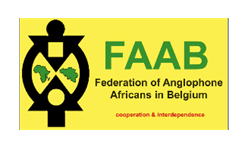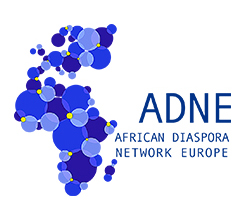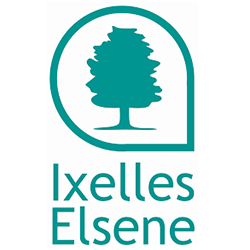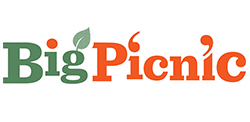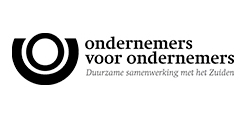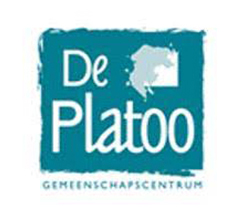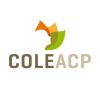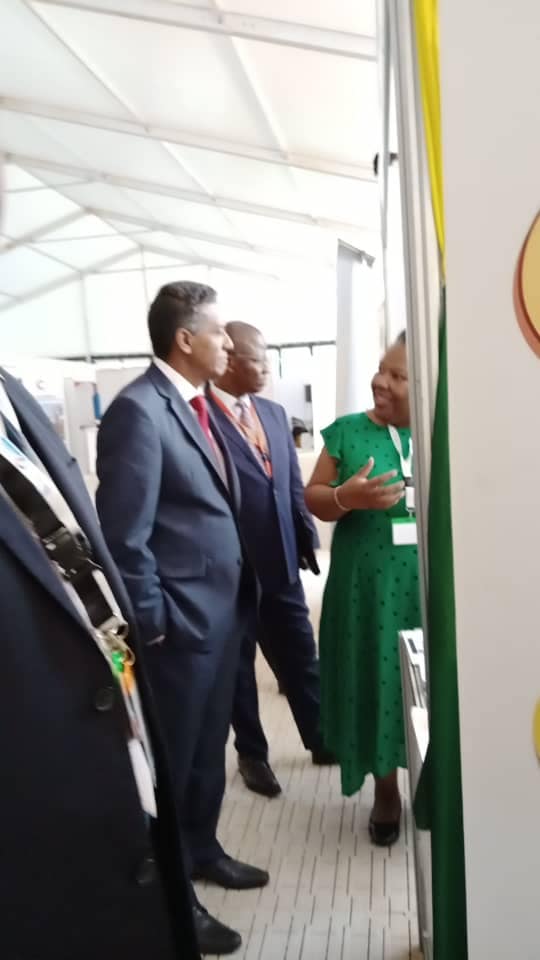
Dr Maureen Duru, Founder of The Food Bridge vzw explaining the concept of the African Diaspora Projects Initiative
to the President of Seychelles, Mr Faure.
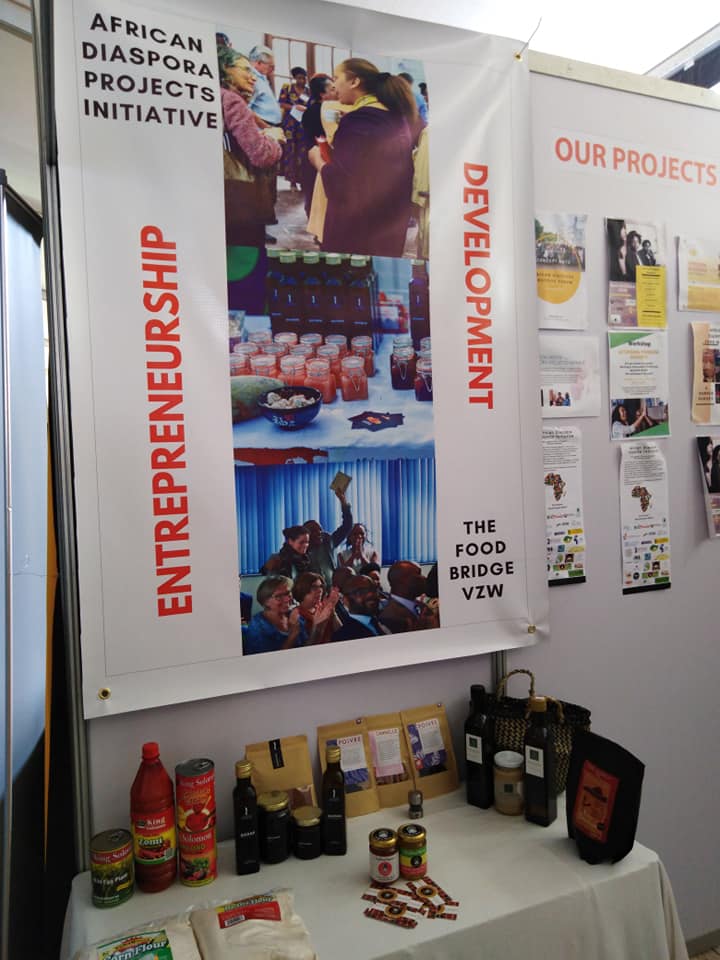
The Food Bridge vzw attended the ACP Business Summit held at the KICC, Nairobi Kenya. The event provided another opportunity for the Food Bridge's to introduce the African Diaspora Projects Initiative and further highlight the role of African Diaspora Entrepreneurs in developing the African agrofood sector. Some of the dignitaries that visited the Food Bridge's stand at the event included President Faure of Seychelles, Nigerian state minister of budget and national planning, Mr Clement Ikanade Agba , H.E Ambassador Inusa and Mr Maxy Ogbede of Nigerian embassy Belgium and many others.
Some food products by African Diaspora entrepreneurs were also on display. This helped showcase the work that African Diaspora entrepreneurs are already doing in this sector. Our aim is for many to learn about the great work being done by these entrepreneurs and also patronize these entrepreneurs. Contact the Food Bridge vzw for a list of African Diaspora entrepreneurs and their products.
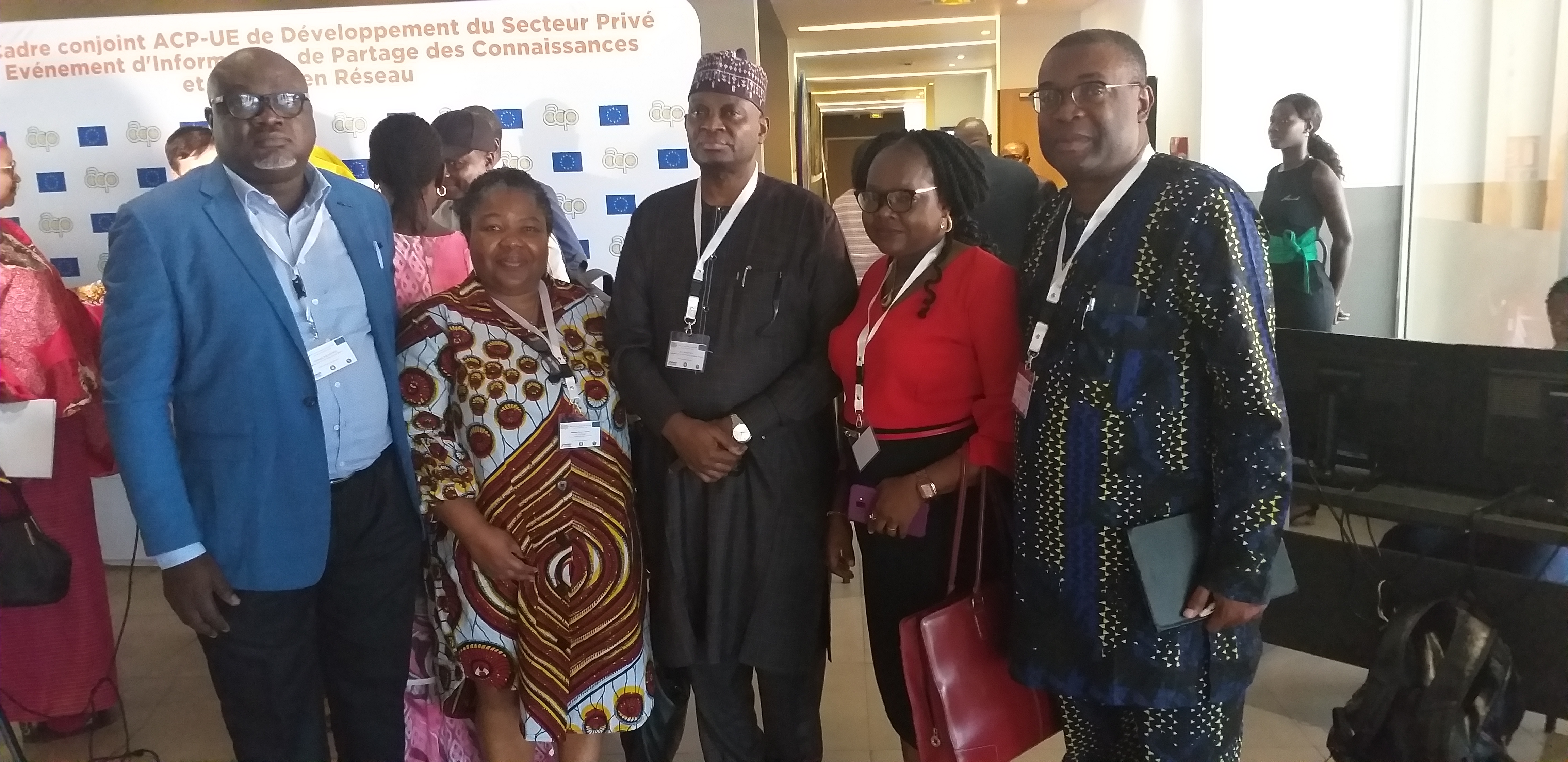 1st day of the event. From left Mr Folorunsho, Director Nigeria export promotion council, Dr Maureen Duru of The Food Bridge, His Excellency Ambassador Inusa of Nigerian Embassy Belgium, Mrs Udo-Udofia, Director Nigeria investment promotion council and Mr Ade-Onojobi, a Director of Manufacturers association of Nigeria.
1st day of the event. From left Mr Folorunsho, Director Nigeria export promotion council, Dr Maureen Duru of The Food Bridge, His Excellency Ambassador Inusa of Nigerian Embassy Belgium, Mrs Udo-Udofia, Director Nigeria investment promotion council and Mr Ade-Onojobi, a Director of Manufacturers association of Nigeria.
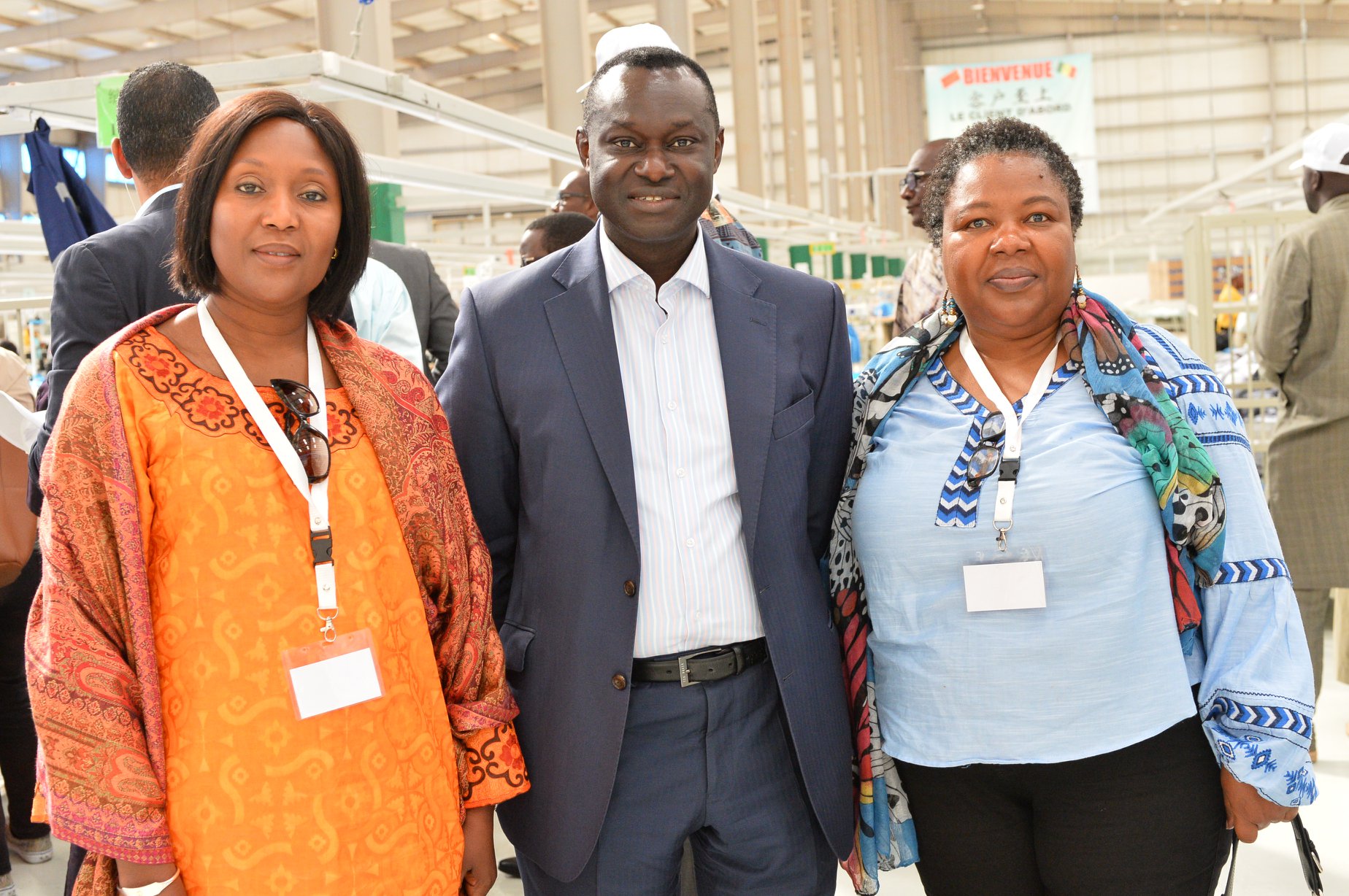
2nd day of event . From Left , Her Excellency Mrs Teneng Mba Jaiteh, the Gambian Ambassador to Belgium, Prof Gibril Faal , Director GK Partners and visiting professor LSE with Dr Maureen Duru of The Food Bridge vzw.
The Founder of the Food Bridge vzw Dr Maureen Duru, was one of the discussants on the Thematic Session 3 - Developing Agro-industries and intra-African Trade in Agricultural Products, at the ACP- EU event in Dakar Senegal held from the 6th to the 8th of November 2019. This ACP-EU PSD Information, Knowledge Sharing and Networking event focused on the development of the private sector. In her contribution, Dr Duru highlighted the relevance of African Diaspora Entrepreneurs in the development of Africa and the need for policy makers, funders and governments to involve them in their plans.
During his speech at the closing event, the Gambian honourable minister of finance His Excellency Mr Mambury Njie, also emphasised the need to involve African Diaspora in the development plans of African countries. According to him, the African diasporas have the skills and expertise needed in the continent. Participants at the event included diplomats, policy makers, representations of trade unions and many entrepreneurs.
Compendium
Upcoming Events
The Helping Hand Project
In collaboration with Kwabre Ne Sekyere Belgium,Mfantesman vzw,Voice of Women International, Kente FM and other African organizations, we are organizing "The Helping Hand project",is an action started in 2016, aimed at feeding the homeless in the Brussels area. We are in need of volunteers to help with the cooking, packing and distribution of food to the homeless and needy. We are also still looking for sponsors for this project. We do not accept funds but prefer sponsorship in the form of donations of desired food items, food packaging materials. if you are interested in giving a helping hand, contact us on This email address is being protected from spambots. You need JavaScript enabled to view it.







 For the first time, two visionary women have been jointly honored as the 2025 African Diaspora...
For the first time, two visionary women have been jointly honored as the 2025 African Diaspora...  The Collective Action on Forgotten Food is calling on women artists, designers, illustrators...
The Collective Action on Forgotten Food is calling on women artists, designers, illustrators...  The Food Bridge vzw, with the support of its partners, publishes an annual Compendium...
The Food Bridge vzw, with the support of its partners, publishes an annual Compendium...  Diaspora organizations in Belgium are vibrant and diverse—spread across...
Diaspora organizations in Belgium are vibrant and diverse—spread across...  30 years ago in Beijing, women from around the world demanded equality and also made history. The...
30 years ago in Beijing, women from around the world demanded equality and also made history. The...  Registration is still open for the upcoming FAO & ICMPD event on 𝗔𝗴𝗿𝗶𝗳𝗼𝗼𝗱...
Registration is still open for the upcoming FAO & ICMPD event on 𝗔𝗴𝗿𝗶𝗳𝗼𝗼𝗱... 